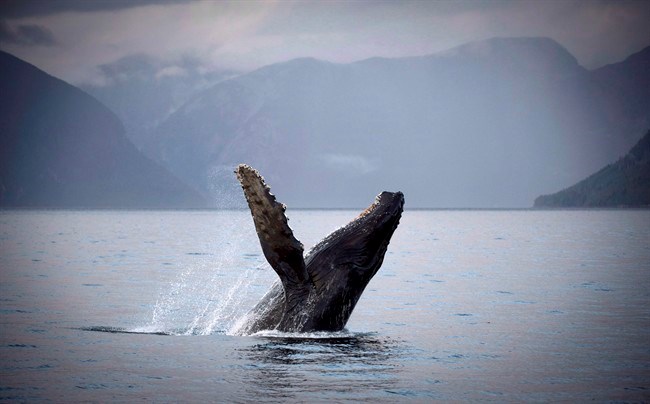 They’re handing out Vancouver Island’s National Philanthropy Day awards at The Empress this afternoon, rewarding those who volunteer for non-profits. Happily, supporters of environmental charities need not wear fake noses and glasses this year.
They’re handing out Vancouver Island’s National Philanthropy Day awards at The Empress this afternoon, rewarding those who volunteer for non-profits. Happily, supporters of environmental charities need not wear fake noses and glasses this year.
Buried among all the changes announced in Ottawa last week was this: After three years of using tax audits to threaten Canadian green groups, the federal government in changing course. This goes back to 2012, when the Harper government allocated $8 million to audit the political activities of charities — the threat being that those deemed too political could lose their tax status.
The Conservatives denied that the audits were politically motivated, but it was hard to ignore that they were introduced at the same time Harperites were muttering about “radical” environmentalists bogging down the Northern Gateway pipeline-approval process.
It was also hard to ignore that by this spring, when the Canada Revenue Agency’s political-audit budget had grown to $13.4 million, environmental and left-leaning groups — from the David Suzuki Foundation to Amnesty International Canada — had made up a big chunk of the more than 50 bodies investigated. That’s out of a pool of 86,000 registered charities.
In March, UVic’s Environmental Law Centre issued a report arguing audits had resulted in a “chill” among charities that were afraid to speak up about important issues. It wasn’t that they were necessarily breaking the rules, which bar them from spending more than 10 per cent of revenue on work defined as being political (and bar them from any partisan activity at all), but that the process was onerous, particularly for small charities with shoestring budgets.
“Although most groups audited so far have been found without fault, an audit is an intimidating, time-consuming, costly and resource-intensive process that all want to avoid,” the paper said.
The 62-page report did not conclude that the government directly used audits to silence critics, but said the muting effect was the same: “The important thing is that the audits themselves — and the mere perception that they may be targeted — are clearly silencing charities that have much to offer society.”
The paper called for reforms that would let charities do more policy advocacy without risking charity status. That’s what happened last week, when Justin Trudeau gave Revenue Minister Diane Lebouthillier her marching orders. His mandate letter directed her to “allow charities to do their work on behalf of Canadians free from political harassment, and modernize the rules governing the charitable and not-for-profit sectors.... This will include clarifying the rules governing ‘political activity,’ with an understanding that charities make an important contribution to public debate and public policy.”
As you might expect, this reversal of course is being celebrated at the Environmental Law Centre, where the change of government is being treated like the Relief of Mafeking. “My students’ mood is buoyant,” ELC legal director Calvin Sandborn said Monday. For the past few years, he said, the feeling was that it was useless trying to sell Ottawa on evidence-based law reform, as anyone with an environmental agenda was viewed almost as an enemy of the state. Now, Trudeau is countermanding the Harper decisions that made green groups see red.
Unmuzzling federal scientists? Check.
Banning oil tankers from the coast? Check.
Reforming political-activity rules? Check.
Restoring habitat-protection provisions of the Fisheries Act, weakened as the Conservatives sought to ease the regulatory burden on pipeline proponents? Not yet, but it’s on the list. If this keeps up, we might see Suzuki crack a smile.
Sandborn argues that society benefits when cage-rattling charities persuade the government to implement reforms. “After all, the ‘political’ work of the [Canadian] Cancer Society gave us laws against smoking in public places,” he said. “The ‘political’ work of Mothers Against Drunk Driving has saved hundreds of lives by toughening drunk-driving laws. And the ‘political’ work of environmental organizations has established parks, eliminated the lead in gasoline that was poisoning our children, cleaned up the Great Lakes and the B.C. pulp industry, and benefited society in countless other ways.”



